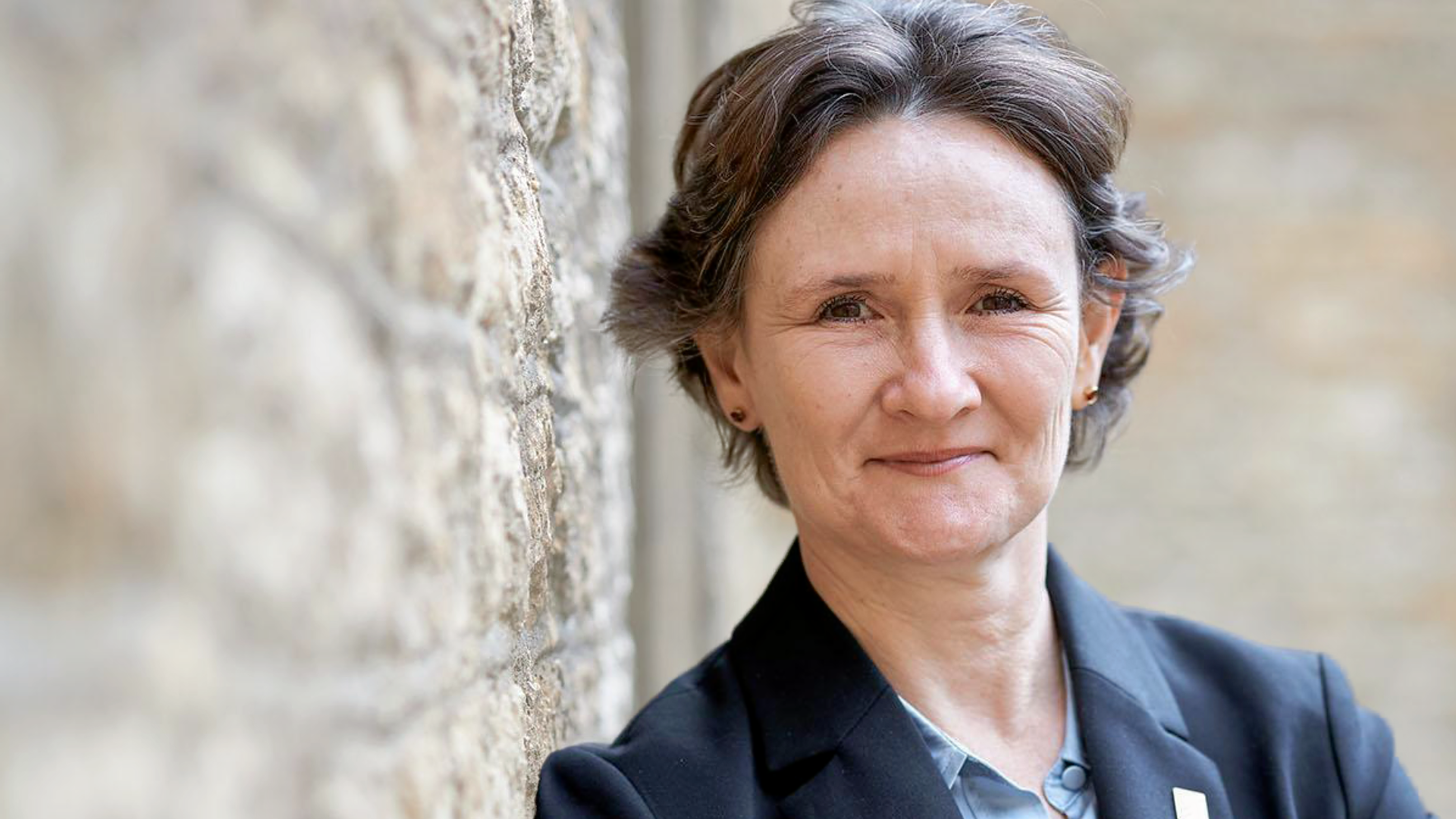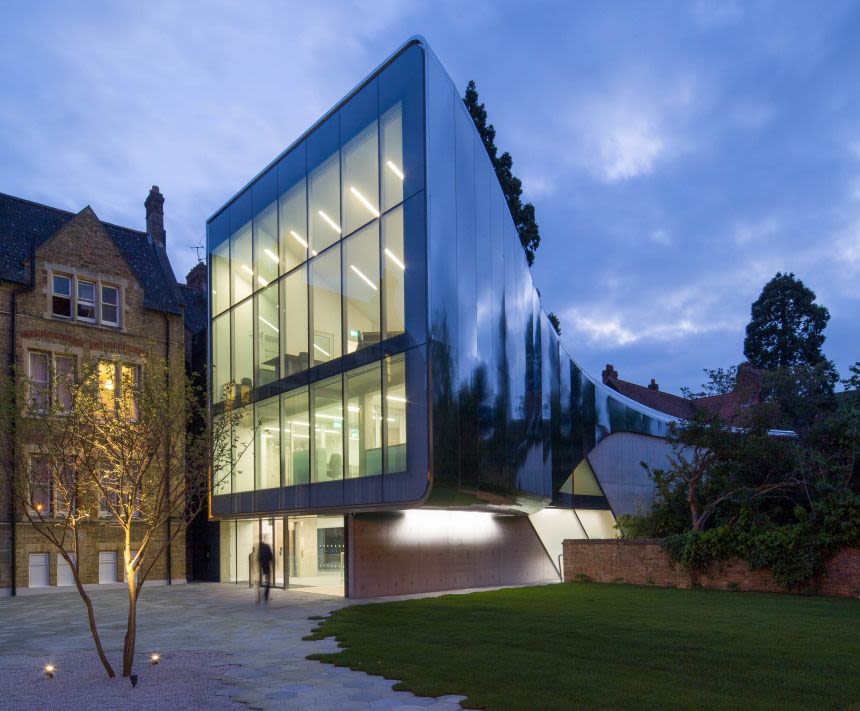Tackling the challenges of chronic pain

Having completed both her undergraduate and graduate studies at Oxford, Irene Tracey, eminent neuroscientist and Professor of Anaesthetic Neuroscience, is now the University’s Vice-Chancellor.
Following a postdoctoral position at Harvard Medical School, Professor Tracey re-joined the University in 1997, becoming a founding member of what is now the Wellcome Centre for Integrative Neuroimaging, of which she was Director for ten years until 2015.
Her multidisciplinary nature has seen her tenure in the Department of Physiology, Anatomy and Genetics, be appointed as Nuffield Chair in Anaesthetic Sciences and become Head of the Nuffield Department of Clinical Neurosciences.
Until her inauguration as Vice-Chancellor, Professor Tracey was also the Warden of Merton College, Oxford – her alma mater.
For two-and-a-half decades, Professor Tracey’s research group has contributed to a better understanding of pain perception, pain relief and nociceptive processing.
As well as being elected a Fellow of the Academy of Medical Sciences, and winning the 2017 Feldberg Foundation Prize, Professor Tracey was appointed a CBE by Her Majesty Queen Elizabeth II in the 2022 New Year’s Honours list and in 2023 was elected a Fellow of the Royal Society.
It can be said that Professor Tracey wrote the book on pain. Literally.
In 2022 it was announced that Professor Tracey would become Vice-Chancellor of the University of Oxford, the institution she studied at, and made immeasurable contributions to, both as a researcher and as a teacher.
Addressing the Sheldonian Theatre as she was formally admitted as the University’s 273rd Vice-Chancellor, Professor Tracey described beneficial neuronal behaviour in the brain, saying that ‘if you fire together, you wire together’.
Her aim being to ‘fire and wire’ the University more closely with the city of Oxford, the rest of the UK and the rest of the world.
Coincidentally, during Professor Tracey’s first few months as Vice-Chancellor, the University has been highlighting its strength and breadth of brain and mental health research– a campaign which she is ‘absolutely delighted’ to be giving her support to.
20% of the adult population experience chronic pain.
Interviewed in the modern surrounds of the Zaha Hadid designed Investcorp Building at St Anthony’s College, Professor Tracey speaks passionately about her field and the array of fantastically students, postdocs and clinicians that she has worked with over the best part of 30 years.

Investcorp Building, home of the Middle East Centre at St Anthony's College, Oxford
Investcorp Building, home of the Middle East Centre at St Anthony's College, Oxford
She’ll be ‘supporting from the wings’ the researchers continuing trials into understanding pain and pain relief, as well as how anaesthetics produce altered states of conscious awareness - championing their work in her new role as Vice-Chancellor.
Asked to describe her research, she talks about the important problem of pain.
‘Well, pain can be good or acute pain’ she says, ‘that’s your everyday pain that tells you you’re hurt, and you should look after yourself and protect the area so that it can heal.’
‘It’s actually one of the biggest challenges that we have now in the developed world. One in five of the adult population have chronic pain, and it’s both a huge suffering and financial burden for society’
‘And then there’s what I call the dark side of pain’ she explains, highlighting chronic pain – a huge problem that we know very little about.
It’s a big part of what got Professor Tracey into her field, an interesting neuroscience question, almost philosophical, about understanding someone’s subjective pain.

A significant part of what Professor Tracey and her research group have been working on is what she calls ‘plugging the gap’ between injury and what the person says their pain experience is like.
‘You can have no injury and a lot of pain, tiny injury, a lot of pain, lots of injury, very little pain. How on earth can that happen? The link between injury and perception - what some actually feels - is not a simple linear relationship’
Using brain imaging tools, Professor Tracey has been seeking to understand how the brain can construct pain experience differently, even with the same input or cause.
Why is it that when you’re happy, something doesn’t hurt as much, but when you’re anxious or sad, it hurts more?
Expectation plays a role too she says. ‘It can change profoundly the experience of pain you have.’
Having a clearer understanding of how this contributes to some of the mechanisms that hold and hardwire chronic pain can fundamentally change how people view other's' pain and what causes it - it's not just about the injury.
She hopes that this change in our understanding will make people think how to better engage the brain, and consider psychological interventions as much as the pharmacological ones.
Talking about treating pain, Professor Tracey is optimistic for those patients who have had little success with the treatments that they have been given so far.
She says that by understanding the new biology of chronic pain and understanding chronic pain almost as a disease in its own right, we can provide ‘new opportunities for interventions and therapies going forward’ to ‘really address this major medical health problem’.
Though Professor Tracey is keeping a keen eye on progress from the side line in her new role as Vice-Chancellor, she’s optimistic about the work her colleagues are continuing.
‘I’m very confident that my colleagues here in Oxford and my colleagues worldwide are up the challenge’ she says.
‘They’re already making fantastic progress on how to attack it at all these different points so that we can bring benefit to patients going forward’.
In tackling some of the world’s greatest questions about how the brain works, collaboration is key.
Whether this is collaboration between teams within the University, with universities around the world, or with industry experts and funding bodies, Professor Tracey is keen to emphasise the importance of these relationships.
Having spent over six years as a trustee of MQ, the UK’s leading mental health research charity, she’s a strong advocate for the importance of universities in delivering solutions to some of the challenging problems we have surrounding brain and mental health.
‘I am a firm believer, as an educator and a researcher within the university sector, that universities have a critical and key role to play in taking on some of these grand challenges’
Naturally, she says, there has been lots of funding and support for translational research, but she also highlights how we also ‘want to understand it for just the beauty of understanding how the brain works and what make us who we are’.
Championing the work of ‘brilliant, young early career researchers’, graduate students, Principal Investigators and professors, she recognises that the work can’t be done without the funding.
Part of her new role she says, and the role of other university leaders, is to advocate for this support ‘at a research council level, with industry and through philanthropy’.
‘Innovation is, of course, a key part of the university sector’
Something we do well at Oxford, Professor Tracey says, is to drive innovation, creating spin-outs and licenses as well as working with industry.
It’s an area in which she sees enormous growth, and something she’ll be doing ‘everything she can’ to create a really exciting innovation ecosystem and opportunities for researchers and spinout companies in the Oxfordshire region.

As a neuroscientist herself, Professor Tracey knows very well the importance of universities in researching brain and mental health – but what about support for the wellbeing of students and staff?
Asked about what’s being done at Oxford for the wellbeing of its community, she highlights an ‘exciting and innovative’ programme of events and resources.
Spanning from the Department of Psychiatry, she says ‘we’re doing a whole range of things… working with our gardens, libraries and museums, thinking about how we can benefit our students and staff through our beautiful parks’.
She notes as well, the popularity of walks with her golden retriever, Geoffrey Biscuit. A firm favourite among the students who have joined her for these walks, and something staff would like to do more of she says.
Highlighting the broader wellbeing resources and activities on offer at Oxford, Professor Tracey is keen to showcase ‘Thriving at Oxford’ – a pan-university initiative that included a two-week wellbeing event series for University staff in June 2023.
At the end of 'Thriving at Oxford' Professor Tracey spoke to Professor Jan-Emmanuel De Neve, Director of the University's Wellbeing Research Centre, about wellbeing in the workplace.
The conversation formed the second episode of her new podcast series 'Fire & Wire'.



